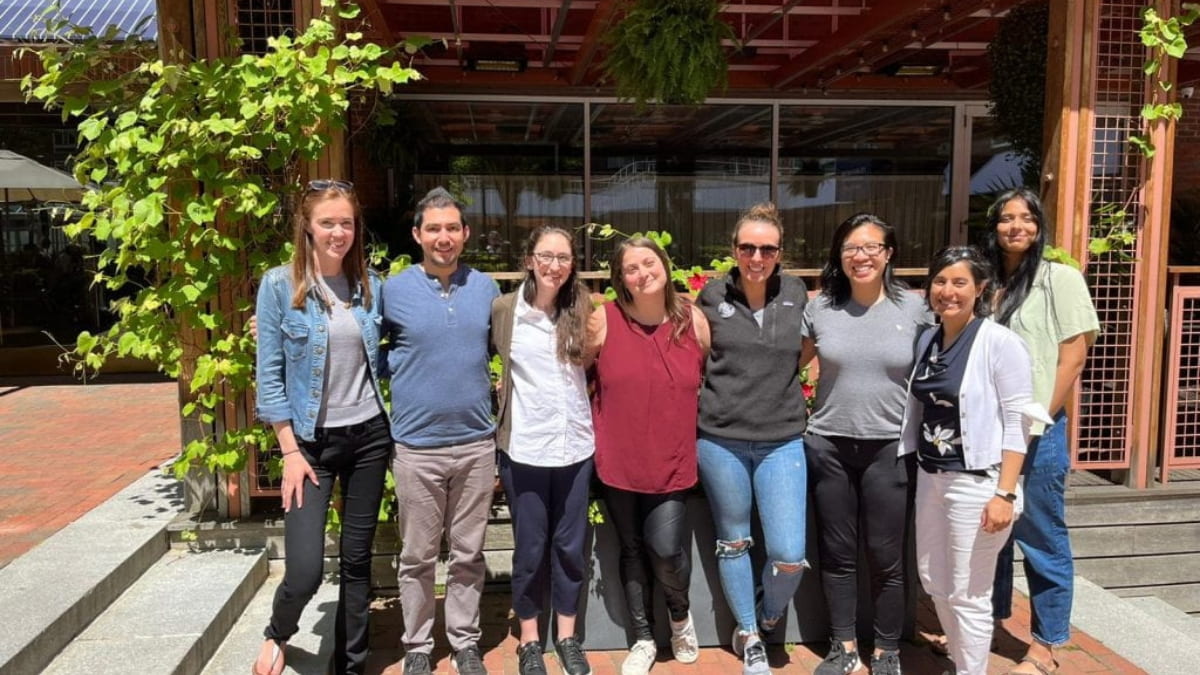written by Salimah Samji
Building State Capability (BSC) empowers public organizations to find local solutions to local problems and to improve the implementation of their policies and programs. BSC has developed Problem Driven Iterative Adaptation (PDIA), a learning by doing approach, that helps develop the capability to solve complex public problems. We build capability by delivering results.
2022 was a return to a new normal – we were able to bring our flagship Implementing Public Policy (IPP) executive program back to campus, host in person events, and meet each other again.
The increasingly complex and uncertain world we live in requires more adaptive, flexible approaches to solve complex problems making the work of BSC more relevant than ever.
Some highlights of 2022 include:
- Trained and engaged with 525 practitioners around the globe (incl. degree programs, online executive education, and policy engagements with governments);
- Published 7 papers, 147 blog posts, and 3 cases;
- Recorded 18 podcasts, including a new 15-part series on the practice of resolving public problems;
- Employed 13 students as research/teaching assistants, providing them with job training skills as well opportunities to learn how our concepts and tools are applied by practitioners around the world;
- Tagged and revamped our blog making it easy to peruse interesting and helpful resources based on sector or region of interest; and
- Translated our PDIA Toolkit into Portuguese and German.
2023 promises to be another exciting year for us. Here’s a few things we have in store for you: launching a new website that will allow you to better engage with us; releasing our PDIA Toolkit in Indonesian and French; publishing a new BSC case series, more blogs; and sharing our experience on building communities of practice with you. Subscribe to our newsletter to stay in touch.
Here is a detailed account of our activities in 2022.
Building Implementation Capabilities
BSC Faculty Director Matt Andrews chaired the Harvard Kennedy School executive education program entitled, Public Financial Management (PFM) in a Changing World and wrote a blog proposing 8 Pillars of Public Finance Performance. 40 PFM practitioners participated in this program in January 2022.
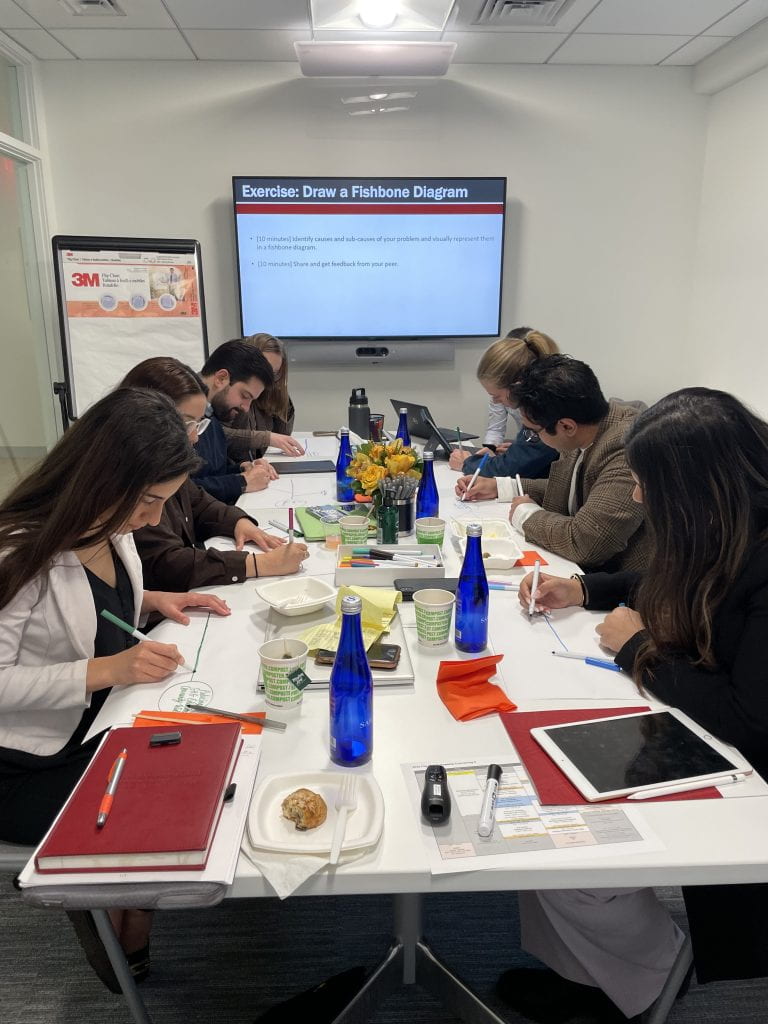
BSC Director Salimah Samji led two sessions for the Bloomberg Harvard City Hall Fellows on problems as entry points to change and teams as a vehicle for change.
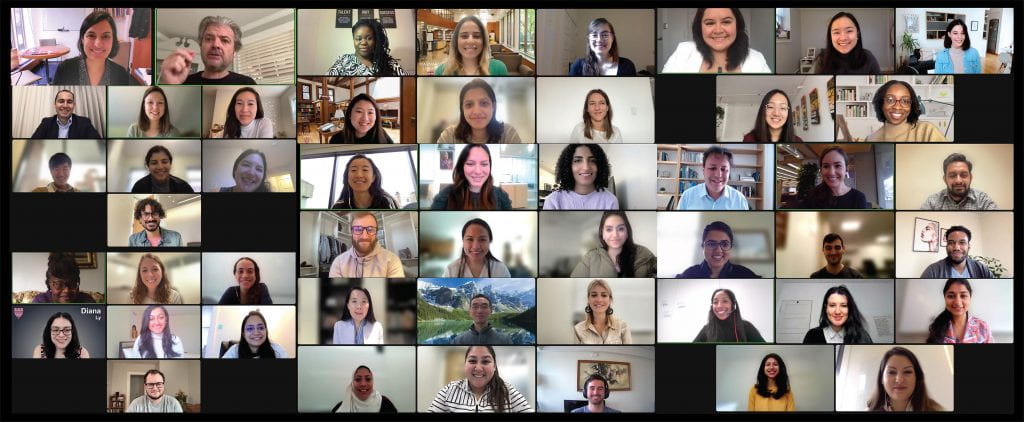
Matt Andrews and Salimah Samji, co-taught the class entitled, PDIA in Action: Development through Facilitated Emergence at the Harvard Kennedy School. We invited 8 alumni of our IPP Executive Education program to nominate real-world problems that the students could work on. The countries they focused on included Azerbaijan, Barbados, China, Ecuador, France, Kenya, Peru, and the United States. 40 graduate students completed the course in March 2022. You can read more about what student’s learned about dealing with uncertainty, the bias towards finding solutions, the importance of different perspectives, iteration, and team-work.
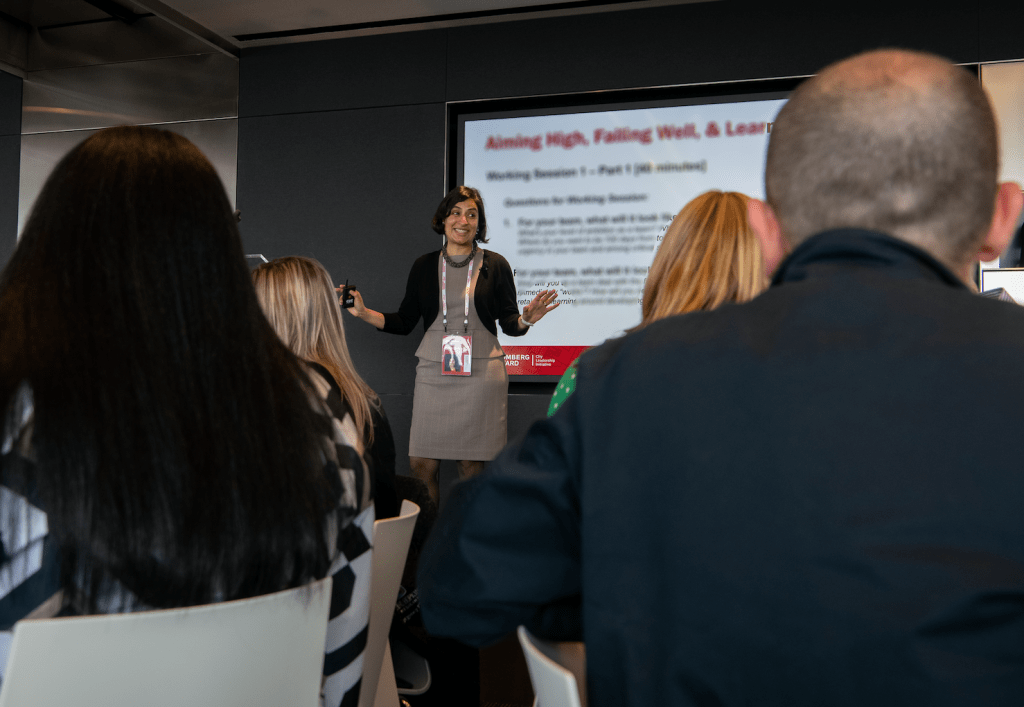
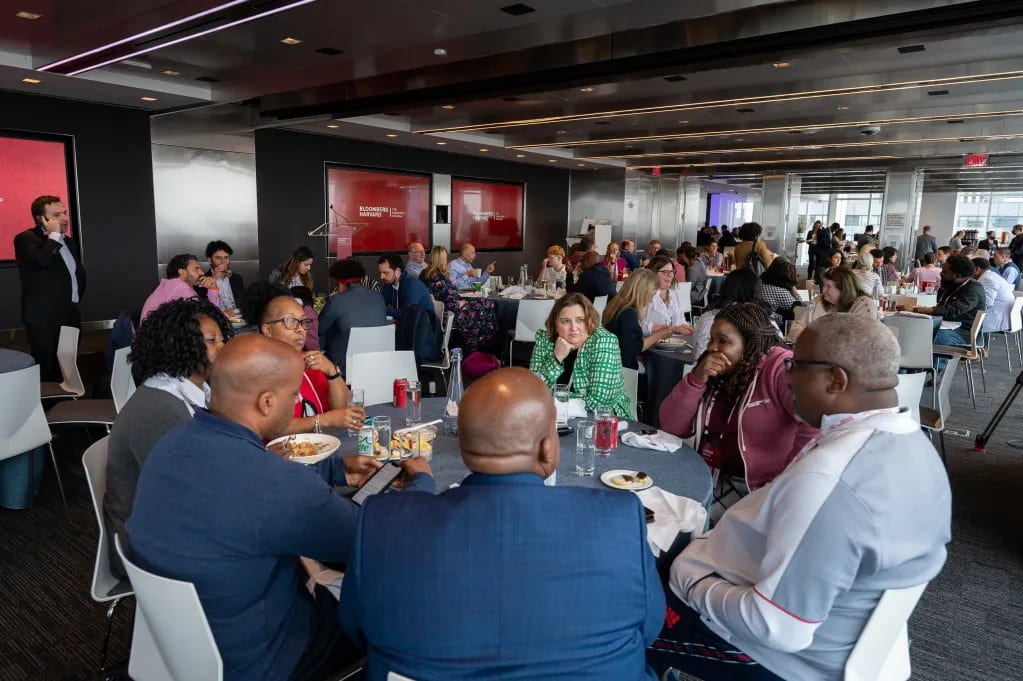
Matt Andrews and Salimah Samji, developed and taught four problem exploratory modules for the Bloomberg Harvard Cross Boundary Collaboration Program in March & April 2022. 80 city practitioners from Baltimore, Bogota, Bristol, Green Bay, High Point, Kansas City, Hampton, Kitchener, Mannheim, and Scottsdale participated in this program.
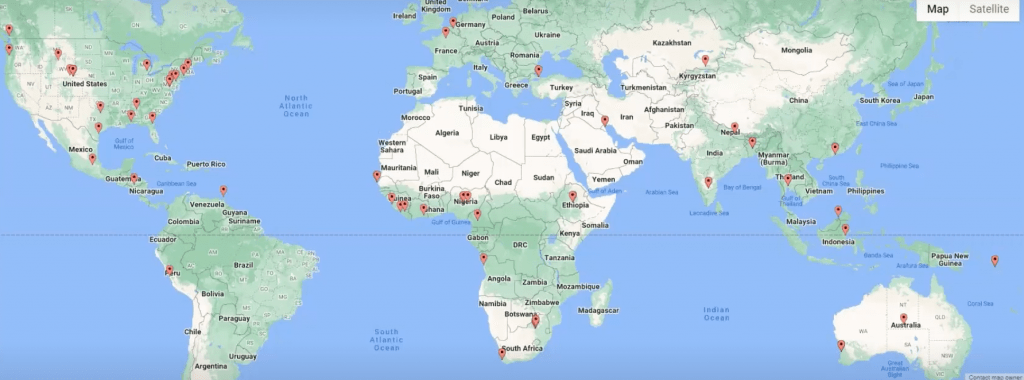
Matt Andrews co-chaired two 10-week sessions of Leading Economic Growth Online with the Growth Lab’s Ricardo Hausmann. 127 practitioners participated in this program in March-May and October-December 2022. Read more about what participants learned.
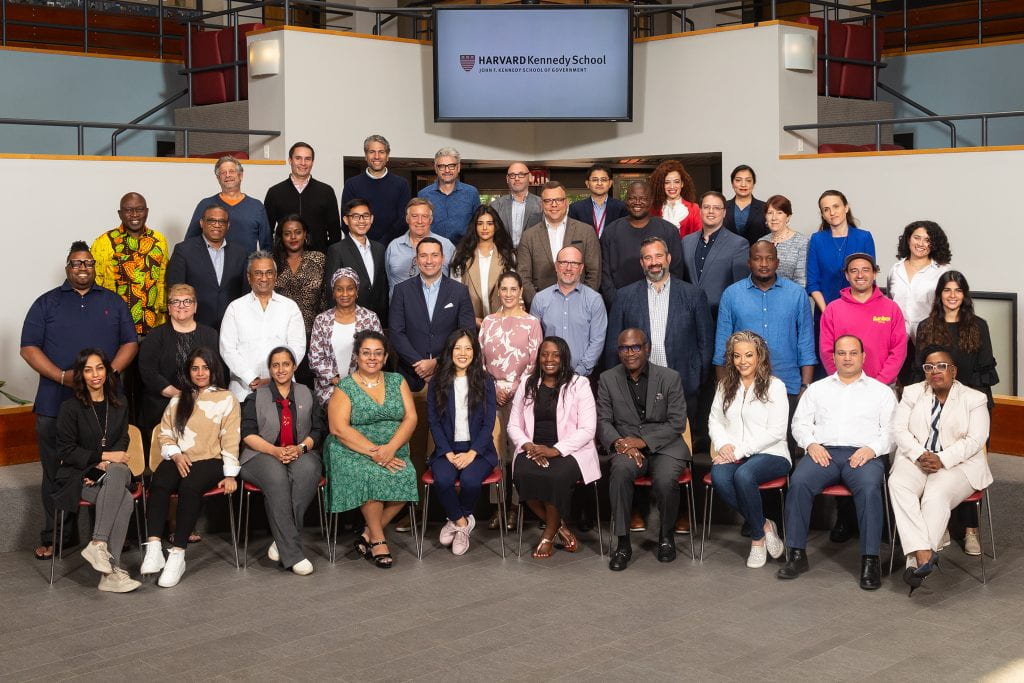
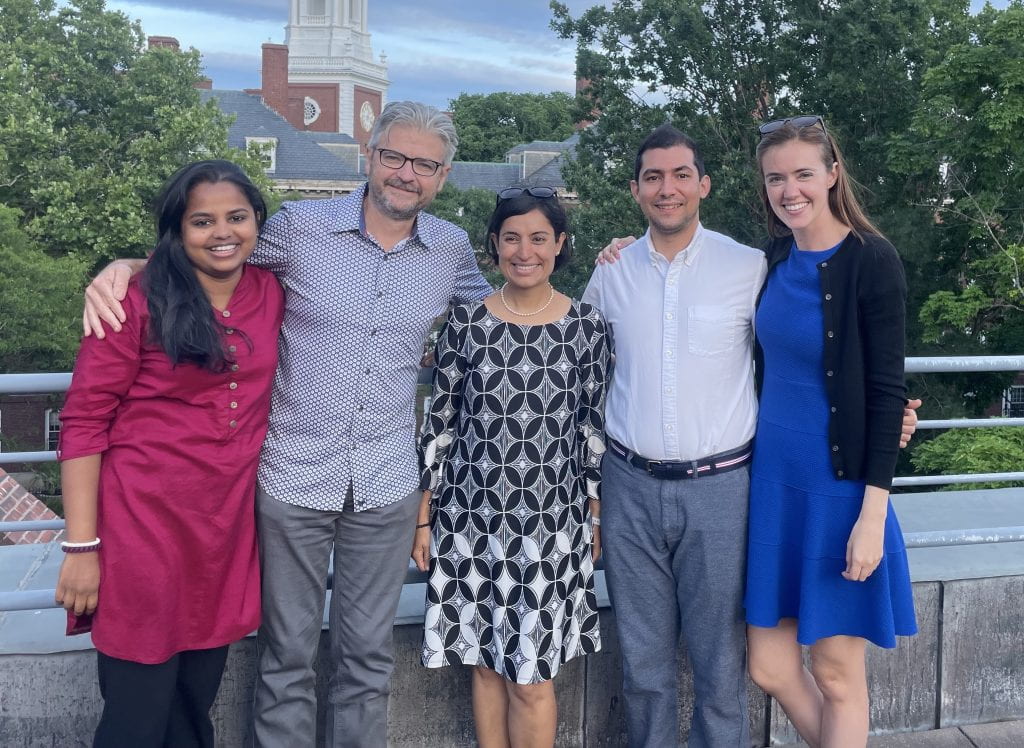
We were able to bring our flagship Implementing Public Policy (IPP) executive program back to campus in June 2022 and ran a fully hybrid classroom, allowing participants who could not attend to directly engage with us. 45 practitioners participated in this program from May-December 2022. You can read more about what practitioners learned.
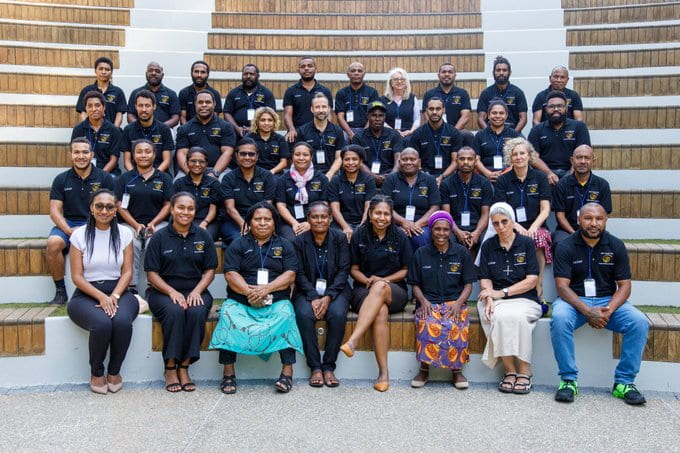
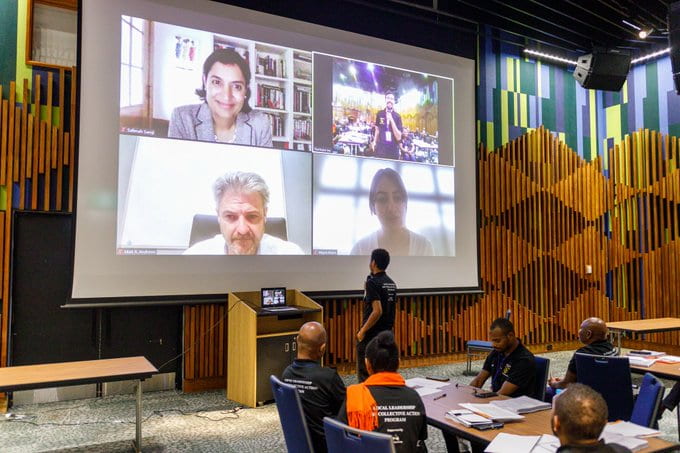
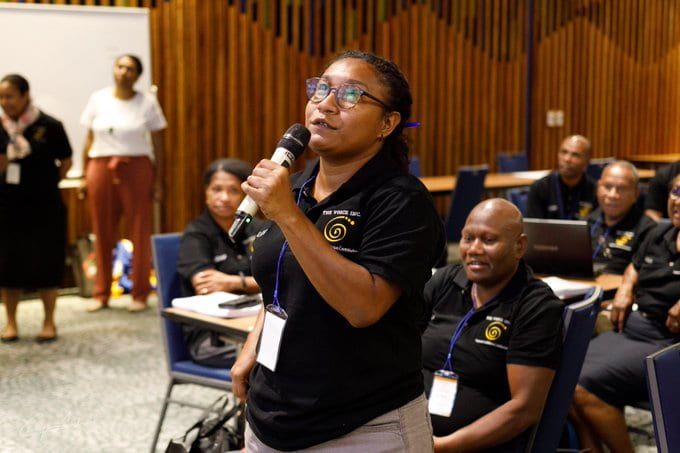
BSC led a PDIA online action learning program for The Voice Inc, a Department of Foreign Affairs and Trade (DFAT) funded Local Leadership & Collective Action Program in Papua New Guinea. 31 development leaders participated in this program from September-December 2022.
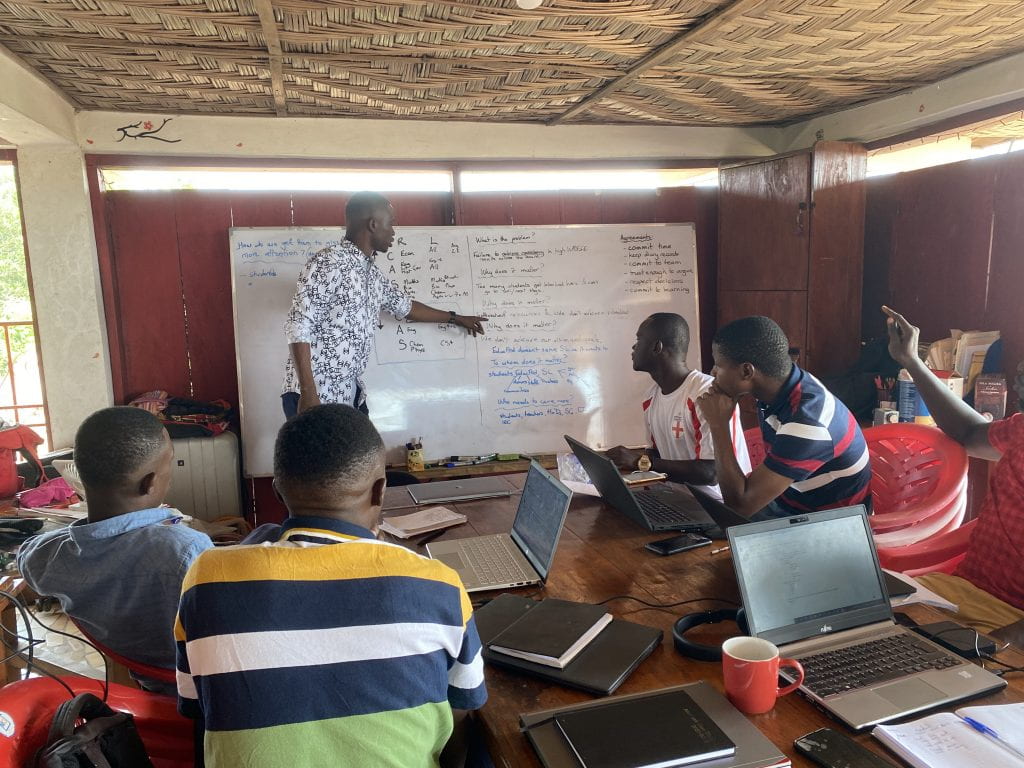
BSC led a PDIA for Education Systems online action learning program for Education Development Trust, funded by United Kingdom’s Foreign Commonwealth and Development Office (FCDO). 56 practitioners across 9 country teams from Ethiopia, India, Kenya, Malawi, Pakistan, Rwanda, Sierra Leona, and Zambia, participated in this program from September-December 2022.
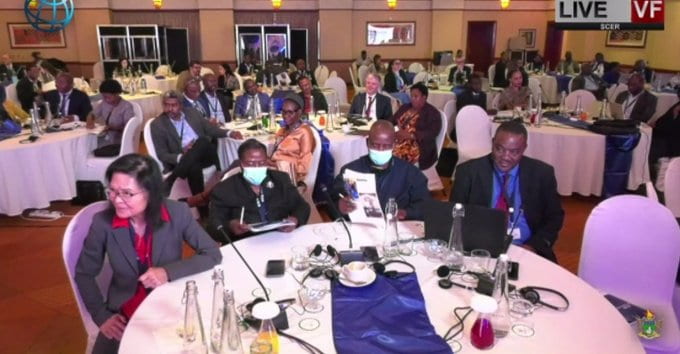
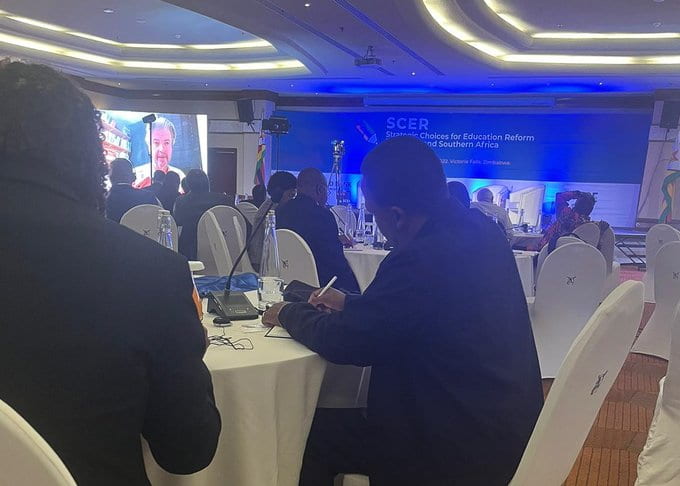
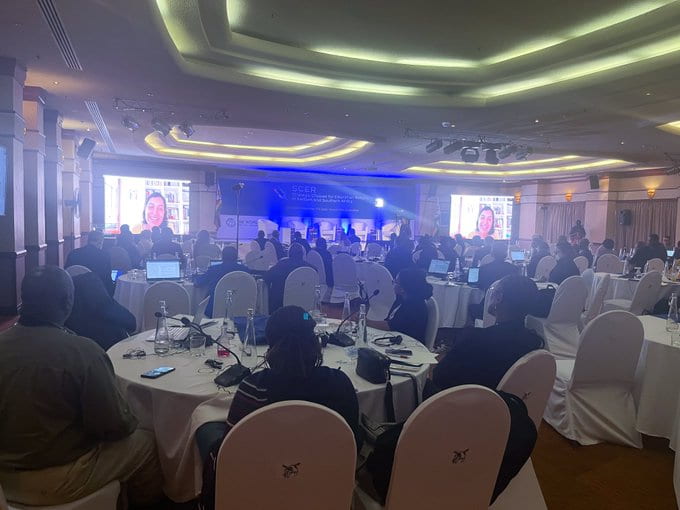
Matt Andrews and Salimah Samji led a session on managing reform design and implementation and facilitated a group session on constructing problems at the World Bank’s Strategic Choices for Education Reform (SCER) event held in Zimbabwe in November 2022.
Publications
BSC wrote 3 papers and 3 case studies, published by the Research on Improving Systems of Education (RISE) Programme, funded by FCDO, as part of our long-standing sponsored research agreement. We also published 4 CID working papers.
These include:
- The Way Forward in Analyzing National Educational Systems: A Re-Considered View, Moore, Mark and Spivack, Marla. 2022. RISE Working Paper Series. 22/110.
- Managing for Motivation as Public Performance Improvement Strategy in Education & Far Beyond, Honig, Dan. 2022. CID Working Paper 409.
- Getting Real about Unknowns in Complex Policy Work, Andrews, Matt. RISE Working Paper Series. 21/083. Listen to the accompanying podcast.
- PDIA for Systems Change: Tackling the Learning Crisis in Indonesia. Barjum, Daniel. 2022. RISE Insight 2022/046.
- A Problem-Driven Approach to Education Reform: The Story of Sobral in Brazil. McNaught, Tim. 2022. RISE Insight 2022/039.
- Funda Wande through the lens of PDIA: Showcasing a flexible and iterative learning approach to improving educational outcomes. Samji, Salimah and Kapoor, Mansi. 2022. RISE Insight 2022/036. Listen to the accompanying podcast.
- Can Africa Compete in World Soccer? Andrews, Matt. 2022. CID Working Paper 403.
- This is How to Think About and Achieve Public Policy Success. Andrews, Matt. 2022. CID Working Paper 413.
- Public policy actors view success differently, and it matters. Andrews, Matt. 2022. CID Working Paper 418.
BSC in the News
Matt Andrews published an article titled, Can an African team win the World Cup? New football study crunches the numbers in The Conversation.
BSC was featured in the OECD’s Observatory of Public Sector Innovation post titled, Digital innovation in government is about solving people’s problems.
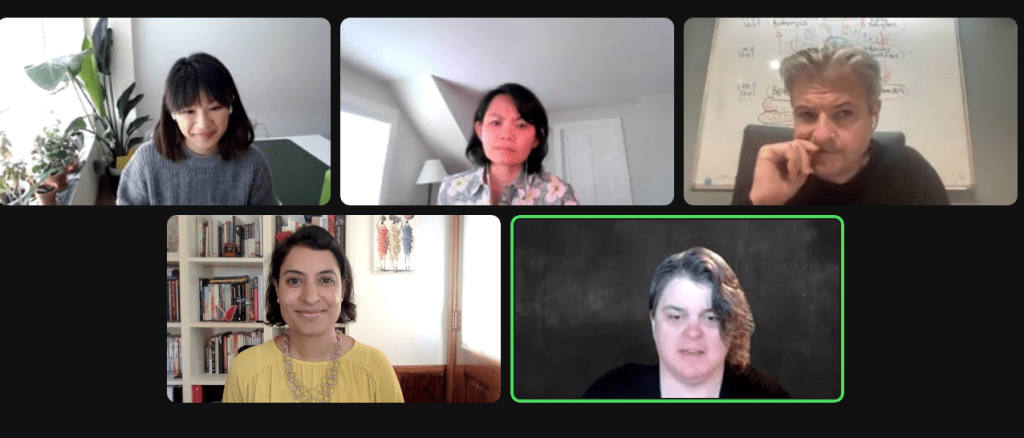
Matt Andrews and Salimah Samji shared strategies for engaging students effectively in team projects at the Harvard Initiative for Learning and Teaching (HILT) conference in September 2022. Watch the video recording.
BSC was featured in an HKS article titled, Learning policy implementation amid complexity and ambiguity. It focused on how IPP Executive Education participants and degree program students at HKS learn to avoid a rush to solutions and instead trust an iterative process.
Matt Andrews was featured in the Harvard Office of the Vice Provost for Advanced Learning’s into practice series on learning effectively through teams. Team-based learning is an effective tool for applying knowledge to complex real-world situations and gives students an opportunity to develop skills in negotiation and collaboration that are necessary in most professional contexts.
Matt Andrews participated in the HKS Dean’s Discussion on international economic development. Read the discussion summary.
Events
This year we returned to hosting in person events but also invited virtual participants around the globe to join us. The energy in the room, the laughs, and the buzz of live interactions was palpable. We really enjoyed interacting with students!
Here are the events we held this year:
1. Learning, Failure, and Blame in the Public Sector
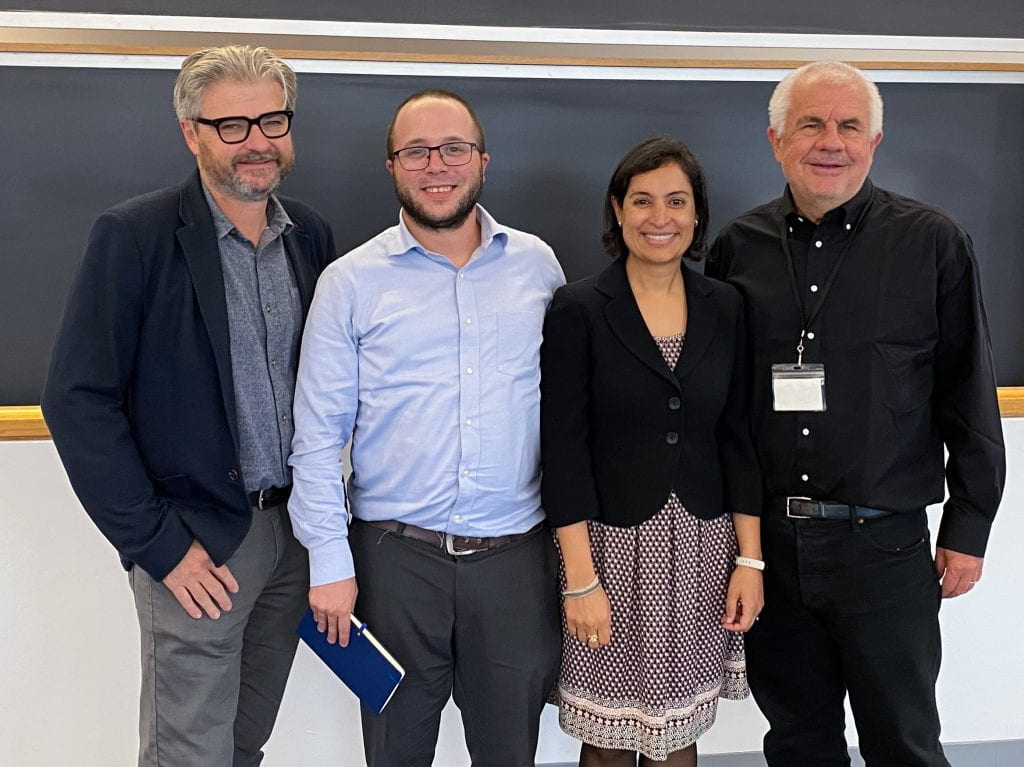
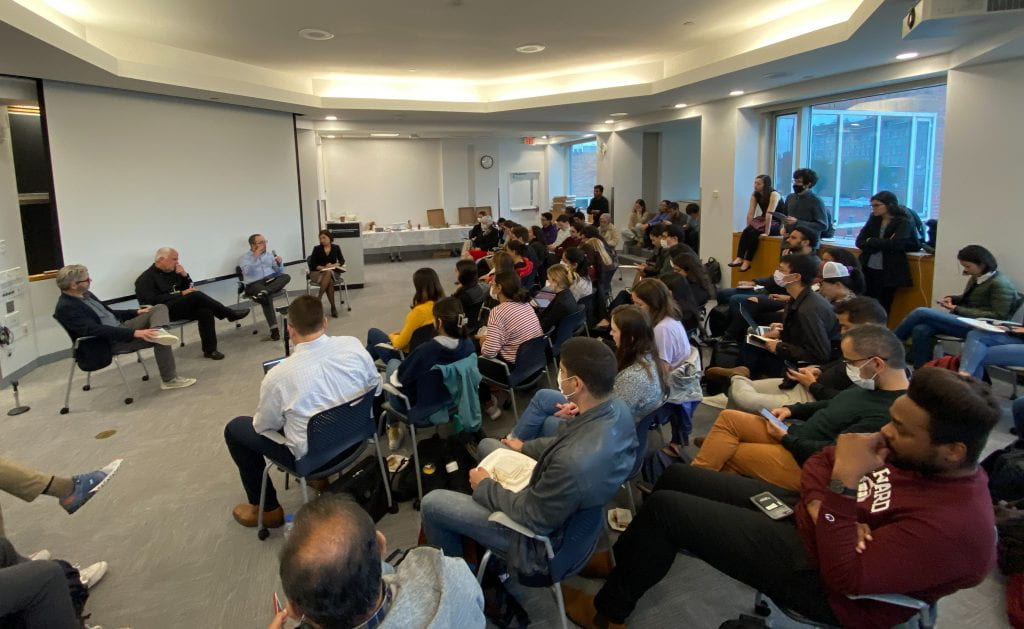
Problems in the public sector are numerous. It is an arena where critique is constant, mistakes are magnified, success is taken for granted, and the risk of failure has public consequences. In this complex landscape, how do you pivot from finger-pointing positions of ‘winner-loser’ and ‘we-they’ to creating a learning environment of “us?” Is failure without blame possible? We explore these questions in this panel discussion on “Learning, Failure, and Blame in the Public Sector” with Lant Pritchett, Salimah Samji, Dan Honig, and Matt Andrews. Watch the video recording.
2. The Case of the Powerful yet Powerless Bureaucrat
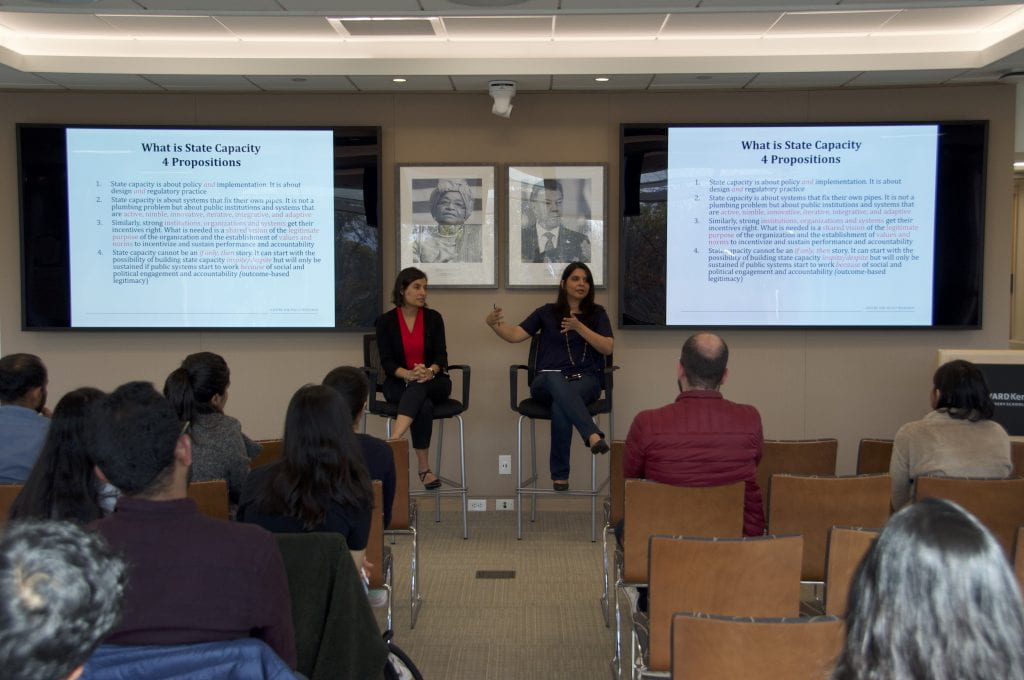
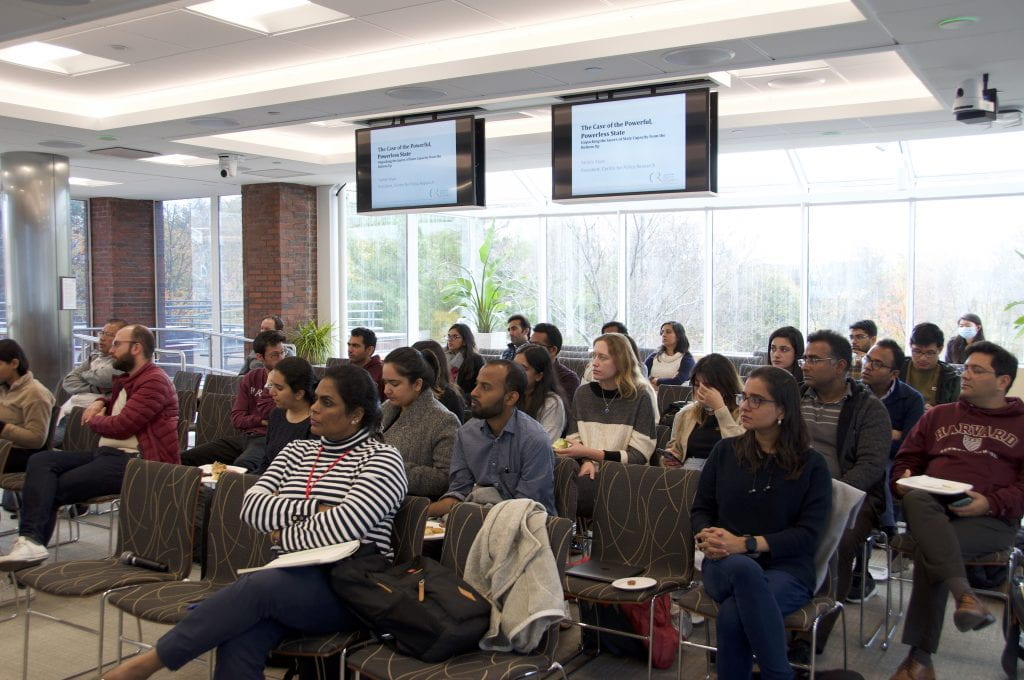
Drawing on over a decade of studying an active practice of “building” state capability in India, this talk offers a deep dive into the dynamics of capability gaps at the frontlines of the Indian State and offer a provocation on why current frameworks for building state capability often fail to address the roots of the problem. Based on emerging experiments in different States and across sectors it also offers glimpses of some promising innovations that offer important lessons on what it will take to do the hard work of state-building away from the glamour of technology and dramatic, sweeping reform politics.
Speaker: Yamini Aiyar, President and Chief Executive of the Centre for Policy Research, India. Watch the video recording and view the slides.
3. Agile Responses to the Ukrainian Humanitarian Crisis: The Power of Cell Phones
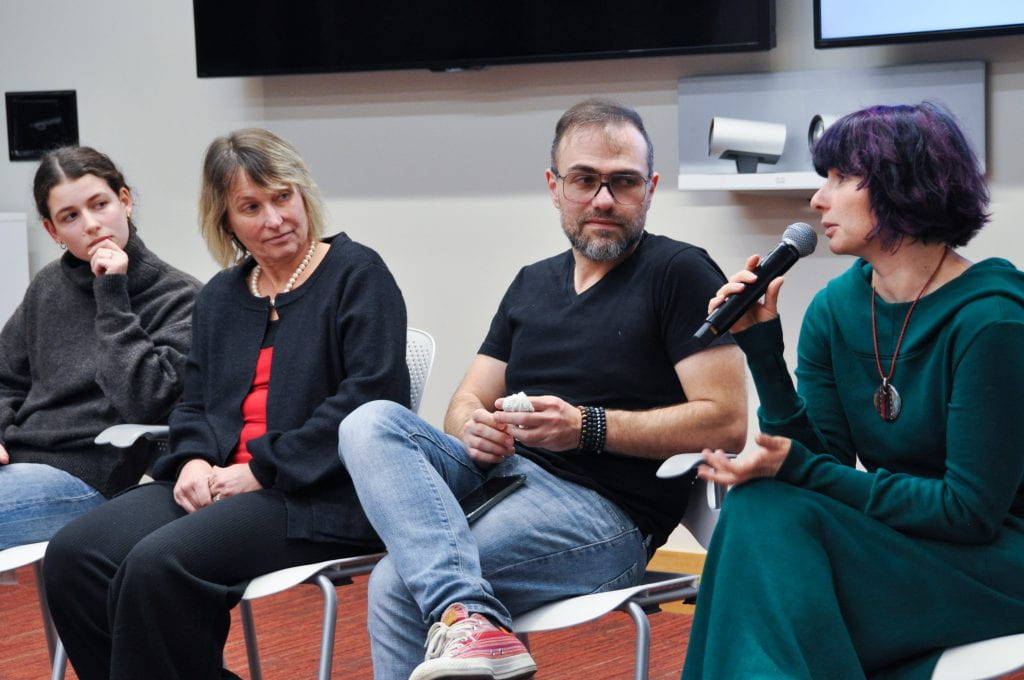
Nobody was prepared for Russia’s invasion of Ukraine … especially the refugees. The traditional sources of help – NGOs and government agencies – were unable to respond quickly and efficiently to the humanitarian crisis facing them. The urgency demanded imagination and energy to help refugees who have weeks, days, or sometimes hours to find ways to survive and then to construct a future for themselves. This event features three organizations that leveraged the networking power of cell phones to gather resources, organize people, and mobilize hope amid confusion and despair, stepping in when larger organizations would not or could not.
Speakers: Rita Vinokur, COO of Rubikus.helpUA, Zhenya Leonov, Freelance software engineer, Olga Yulikova, State Director of the Massachusetts employment and training program and daughter, Sasha Segal. Watch the video recording and view the slides.
4. From Elections to Governing: Getting Beyond Politics to Get Things Done
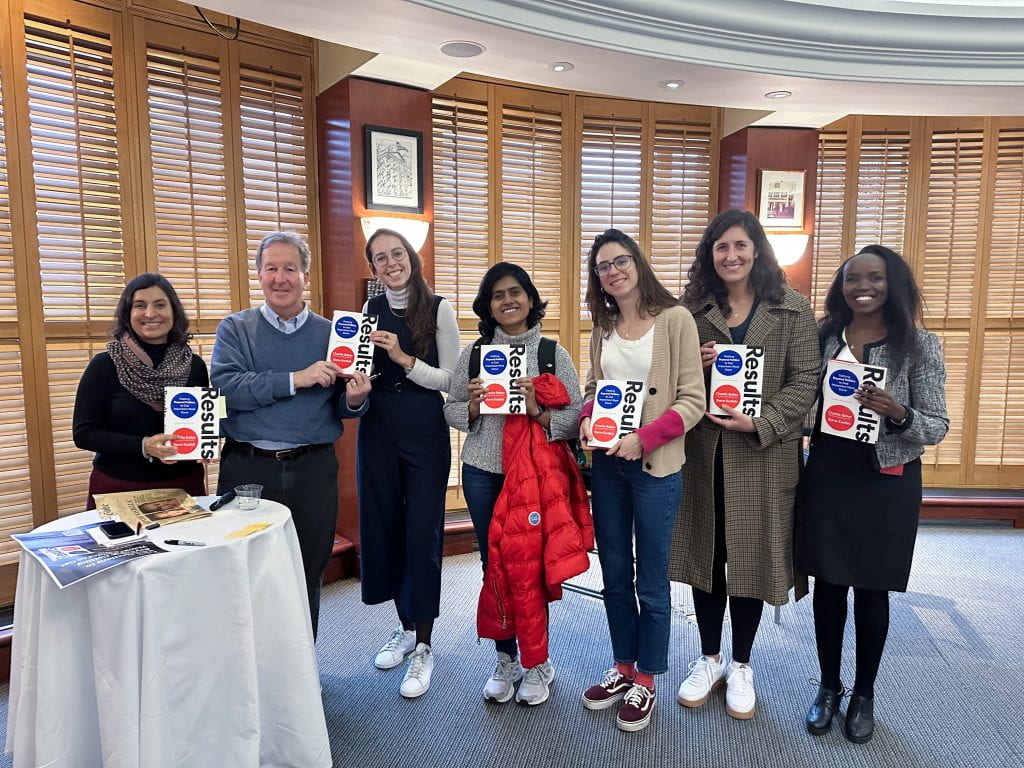
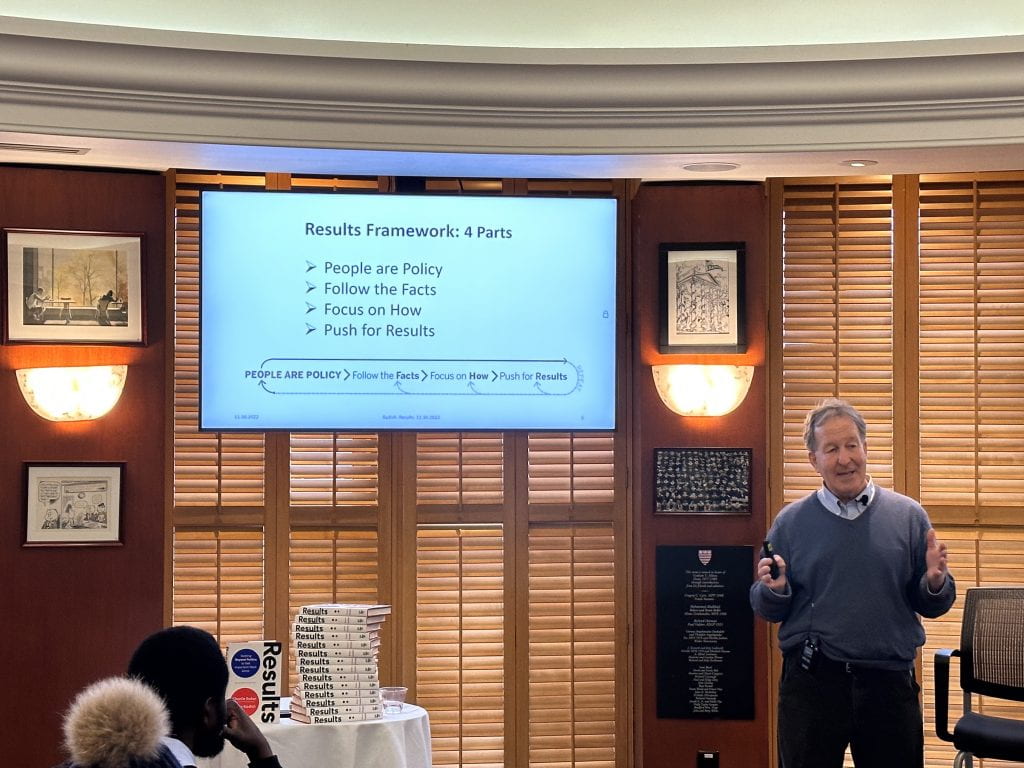
In government, the focus is often on policy, legislative wins, and budget dollars. However, the key components of what makes government work are successful execution and implementation. In this book talk, you will learn about a methodology developed by Governor Charlie Baker and Steve Kadish to move from identifying problems to achieving results—one that grew out of their experiences in government and was shaped by their experiences in the private sector. At its core, their approach is about capacity and capability: about recognizing people’s capacity to lead, evaluate, propose, and act; and about an organization’s capability to focus, operate, and execute. It doesn’t reduce important, complex issues to a single, simple intervention. Instead, it is a comprehensive approach that respects the complexity of implementation. It maximizes the resources available and embraces the best ideas, no matter their source. It is a step-by-step process that leads to sustainable results.
Speaker: Steve Kadish, co-author of “Results: Getting Beyond Politics to Get Important Work Done” and former First Chief of Staff for Governor Baker. Watch the video recording and view the slides.
Podcasts
The Practice of Resolving Public Problems
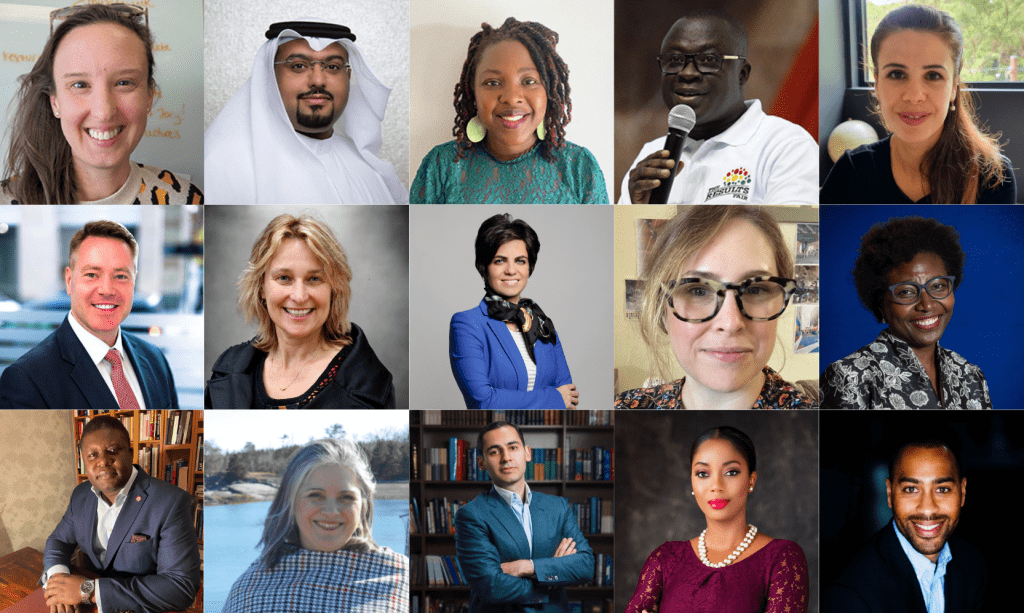
This podcast series consists of 15 episodes recorded over the course of the year featuring alumni of the Implementing Public Policy (IPP) program. Listen to learn how our alumni are using the PDIA tools and approach in their day-to-day lives.
“When we go through the 5 whys and develop a fishbone to identify the root causes of a problem, that helps us find entry points … everybody collaborates”.
– Eleanor Sarpong, Deputy Director and Policy Lead, Alliance for Affordable Internet Initiative (Episode 3)
Pivoting Education Systems in a Crisis – Lessons from Woburn, MA Public Schools
In this BSC podcast, Director Salimah Samji interviews Matt Crowley, Superintendent of the Public School District in Woburn, MA. They discuss how this school system pivoted to remote learning during the COVID-19 pandemic and the importance of collaboration and adaptability when leading through a crisis. Listen to the podcast.
Goals and realities: What World Cup performances can teach us about development in African countries
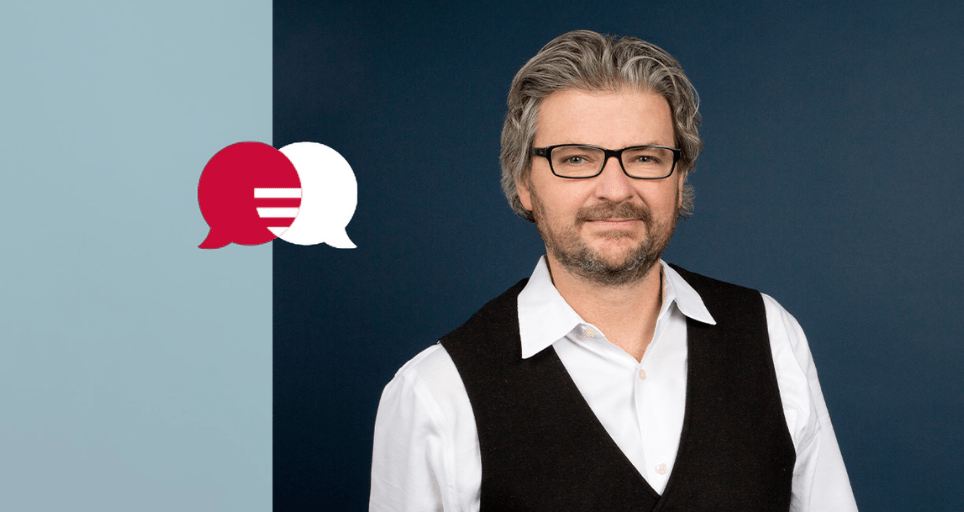
In this HKS Policy Cast, Matt Andrews says the reasons why African nations haven’t done better at soccer’s world championships have a lot in common with why much of the continent’s economic promise has also gone unfulfilled. Listen to the podcast.
